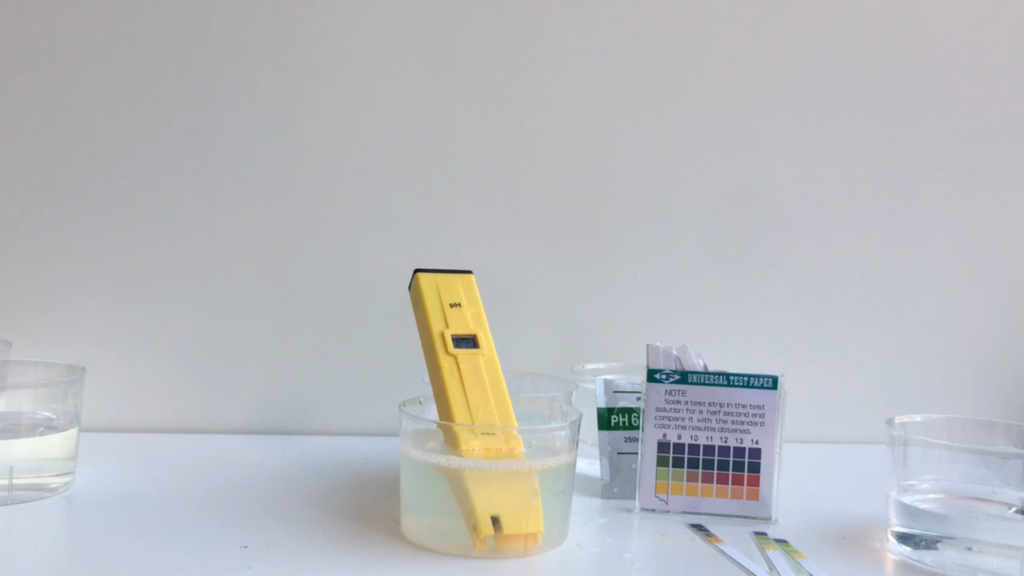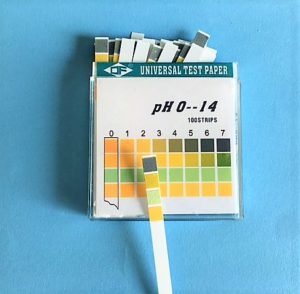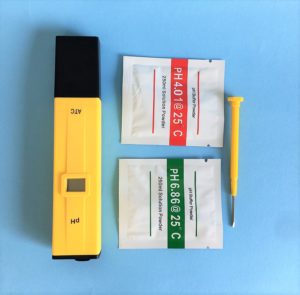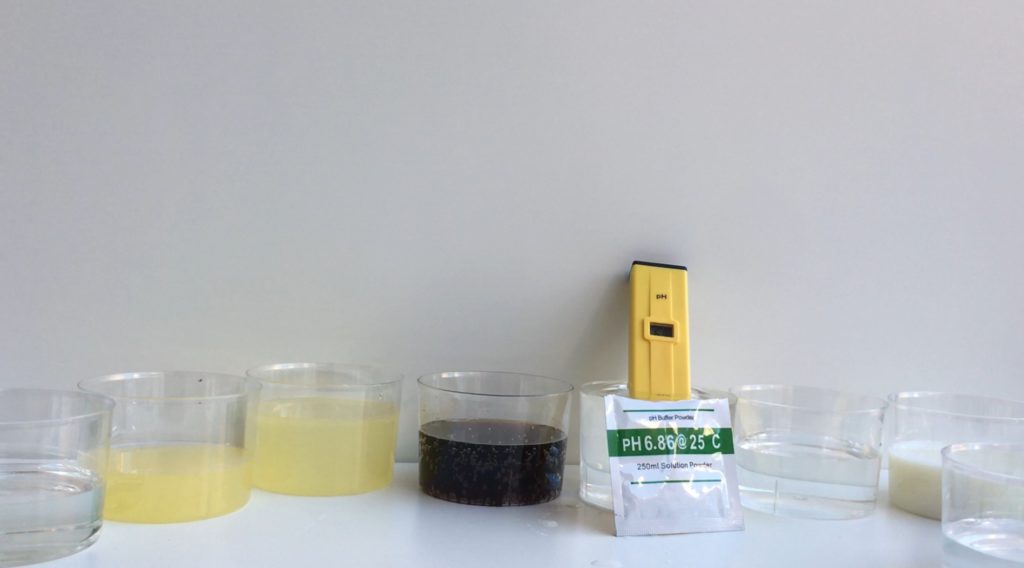EXPERIMENT SHEET LIQUID PH MEASUREMENTS HOUSEHOLD
| Theme | pH |
| Category | Chemistry Experiments |
| Main product | Household products |
| Short description | In this experiment we will measure the pH of different substances that we have at home. We are going to use different pH meters, here you can see how some of them work. pH meters. |

Knowing the pH of the substances we have in each of them will provide us with a great deal of information for the future:
- To learn about subsequent reactions.
- How substances affect our skin.
- Which substances and under what circumstances are more or less dangerous.
- With which materials they can be combined without giving rise to any reaction.
If you measure cleaning products, you will be able to see how a very acidic product will react with a very basic product. For example, we would have the reaction between hydrochloric acid and sodium hydroxide (caustic soda, used for unblock). Here you can see the dangerous reaction when cleaning products such as bleach and ammonia and salfuman and bleach are mixed together.
If you go to measure food products, you can see how some of the substances we eat or drink are very acidic. To counteract the acidity, they are mixed with more basic substances (e.g. a cream ice cream (basic) after having eaten an acidic food (seafood). Conversely, take a fruit (acidic), after having eaten a more basic food, to help dissolve it.
LIQUIDS OF WHICH WE ARE GOING TO MEASURE PH
You can take whatever liquids you want. Thanks to our series of experiments we have several technical substances (such as hydrochloric acid, distilled water or caustic soda). You can use whatever you have at home.
The products we have used are:
- Hydrochloric Acid 37%.
- Natural lemon juice
- Lemon juice 50% in water
- Distilled water
- Tap water
- Hand soap dissolved in water
- Washing machine detergent dissolved in water
- Caustic soda dissolved in water al 50%
PH METERS
To measure the pH of substances we will use 2 different methods:
- A pH indicator strip. A pH indicator strip is a coloured paper strip, impregnated with a mixture of acid-base indicators that changes colour according to the pH of the solution. With this method, only an approximate measurement of pH (pH range 1) is obtained, but it is sufficient for this experiment.

- Digital pH meter. The digital ph-meter is an automatic method of measurement. It is necessary to calibrate and clean it well, to avoid reading errors. Here you can see how to calibrating a digital phmeter.

HOW TO MEASURE THE PH OF SUBSTANCES IN THE HOME
- Put 5/6 substances you have at home (cleaning products, drinks) in 6 different containers.
- Take pH indicator paper. Follow the instructions given by the pH indicator manufacturer (usually very simple instructions, just the time the paper has to be in the liquid to measure the pH).

- Compare the colour indicated by the pH indicator with the manufacturer's colour standard for each of the liquids you have used.
- Repeat the same operation but this time with the digital ph-meter.
- Now the experiment is done! Simply identify which substances are acidic and which are more basic. This will be useful to understand many reactions and behaviour of these liquids!
RESULT: PH MEASUREMENTS
These are the results of the measurements we made. With small variations from one measurement to another, but these were the main results.
| SUBSTANCE | PH |
| Hydrochloric acid 37% | <1 |
| Natural Lemon Juice | 2,3 |
| Natural Lemon Juice dissolved in Water | 3 |
| Distilled Water | 5,7 |
| Tap water | 7 |
| Hand Soap dissolved in water | 7 |
| Detergent dissolved in water | 11 |
| Caustic soda al 50% | 14 |
